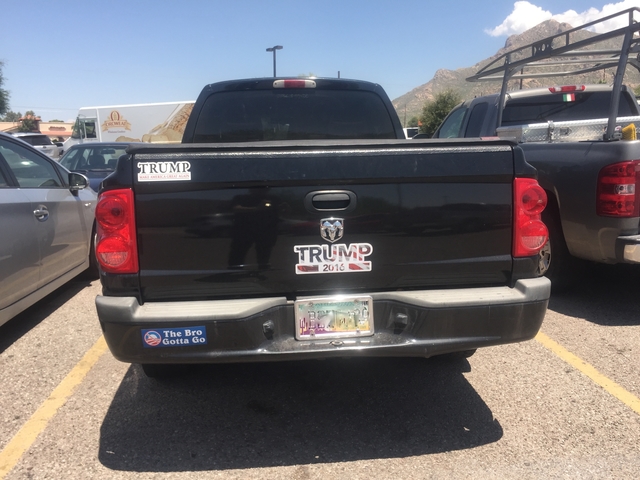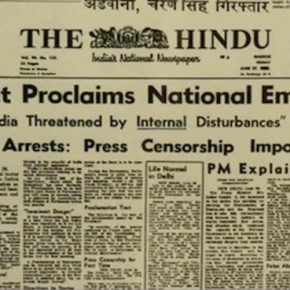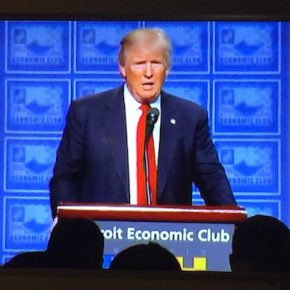While it might seem perverse to call someone who is constantly berated for his imprecision a master rhetorician, Donald Trump has demonstrated time and time again that he has the rare gift of being able to cast a spell over the media with his blend of hyberbole, bluster and hearsay. True, it might cost him the presidential election in November. Coverage does not necessarily translate into votes. Even the seemingly impervious Trump brand might eventually suffer from oversaturation. Nor is there a guarantee, as many commentators have pointed out, that he even wants to win power that way.
To be honest, Trump might not even know, at this point, what he wants beyond perpetual celebrity. But there are plenty of people inspired by his unconventional campaign who have a clear sense of what they want from or, perhaps better said, through him. And that is what has his detractors so worried, that this textbook narcissist, a con man worthy of P.T. Barnum, could become the means to an end so dire that he even he would repudiate it.
For example, few people who have spent time with him over the years consider him capable of the extreme racism some of his followers practice. Trump has long had friendly acquaintances of color, a number of whom continue to stand by him, and consistently seems to have prioritized making money over making distinctions. Yet once he realized how much political influence he could accrue by playing on the anxieties of the far-from-rich white men and, to a lesser extent, women who still make up the majority of the United States’ population, he couldn’t resist taking advantage.
Trump did not create this reservoir of white ressentiment. It has surfaced on numerous occasions since largely being forced to go underground in the 1970s, from the emergence of Reagan Democrats to Newt Gingrich’s Contract with America to the shocking vitriol directed at Barack Obama on talk radio and social media. As the percentage of have-nots has grown and the gulf between regular citizens and the super-rich has continued to widen, the perception that government is only interested in helping out people of color has taken deep root in the less glamorous sectors of American society.
The genius of Trump’s demagoguery was to recognize this trend and capitalize on it, as he would any good business opportunity. In this respect, he differs sharply from fascist antecedents who actually worked to develop the prejudices they would later exploit. Adolph Hitler was saying the same things in 1922 that he said in 1932; Donald Trump has never been anywhere near that consistent. He just seems to grasp intuitively how to create an image of himself that people with whom he has almost nothing in common – he has always led a life of privilege and exclusivity – can identify with.
Some find this quality terrifying; others comforting. It depends whether they would rather be fighting an enemy who believes completely in their rhetoric or one who is chiefly concerned with keeping the audience’s attention. The problem with the latter type of opponent is that it is much harder to hold them to their words. Outrageousness becomes more slippery in direct proportion to its potential insincerity.
Conservative politicians in the United States have long flirted with this “dog whistle” approach, in which the most controversial messages are concealed within content that can be disavowed as humor or speculation. It’s simply that Trump has proven better at this rhetorical mode than his predecessors, reaching a point of near perpetual deniability in which he can plausibly distance himself from almost everything he states in public.
The essence of this approach is captured in the configuration of bumper stickers shown here. Given the two-term limit that American presidents must currently abide by, it is a simple fact that Barack Obama will be compelled to leave office in less than six months. But coupling his iconic “sun” graphic with the slogan “The Bro must go” turns this knowledge into a subtle assertion of white supremacy – calling the president a “bro” is clearly not a sign of respect – that is nevertheless not quite offensive enough to be undeniably racist – after all, the term “bro” was widely used to refer to the mostly white young men who supported Bernie Sanders against Hillary Clinton in the Democratic primary. Juxtaposing this message with bumper stickers supporting Trump’s candidacy allows the latter to benefit from the racist feelings of those who endorse the racialized denigration of the president, without sullying his name. The Trump brand therefore benefits from sentiments that cannot be unequivocally attached to it.
Photograph courtesy of the author





